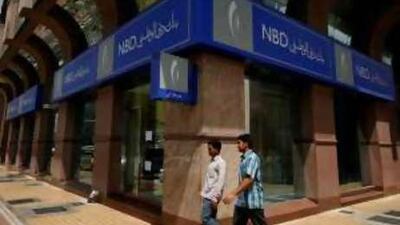A wave of mergers is likely among property companies and banks as the Government eases restrictions on foreign firms and seeks to finance a greater portion of its development at home, analysts say. As the Government moves to liberalise the economy and open domestic companies to foreign competition, arranged marriages between national institutions may become the norm. Larger banks and developers can better cope with pressure from foreign firms, making mergers an attractive - and in some cases essential - option.
"From a very long-term perspective, obviously the banks need scale before they open up to competition," said Robert McKinnon, the head of equity research at Al Mal Capital in Dubai. Banks are currently insulated from competition by laws that require foreign firms to have local partners and restrict ownership of businesses outside economic "free zones". The Government is working on a revised companies law that would open the doors to more foreign firms, but progress has been slow and most observers do not expect any legal changes until next year at the earliest.
Mergers also create large banks that can underwrite large deals, a further enticement to join hands. The financing needs of businesses in the UAE are hardly modest and banks need to have adequate asset bases to take part in their domestic and international growth. "When you have scale, you can make bigger deals, and you start to operate outside the UAE and invest abroad," Mr McKinnon said. Emirates NBD, the product of a merger last October between Emirates Bank and the National Bank of Dubai, is doing just that. The merger, which created the largest bank in the Emirates, helped make possible the banks' ambitious international growth plans.
Emirates NBD recently announced that it would leverage its size - it had about Dh254 billion (US$69bn) in assets at the end of last year - to make inroads into India and Saudi Arabia. And the head of retail banking, Suvo Sarkar, told Zawya Dow Jones last week that the company planned to double its branches in the UAE by 2011. But large banks do not necessarily merge easily. While the Emirates-National Bank of Dubai merger was widely viewed as successful, the two banks have yet to come together in a legal sense. They are not expected to do so until next year, although their stocks have been trading as one for months.
Numerous other banks and developers in the UAE are now considering mergers, according to an unconfirmed report last week in the Al Khaleej newspaper. The National Bank of Abu Dhabi and Abu Dhabi Commercial Bank have long been seen by analysts as ideal candidates for a merger because they would form a banking giant in Abu Dhabi on par with Emirates NBD. If they were to merge, the resulting bank would be only slightly smaller than Emirates NBD, which has roughly Dh250bn in assets.
Property developers have their own motives to merge. While the sheer number of domestic banks - there are more than 40 in the UAE - has helped gel momentum for consolidation, suspected fraud and a lack of transparency have played a leading role with property companies. A widening fraud investigation has rocked the sector in recent months, and mergers could help remove the stain. "The real estate sector doesn't need to consolidate," Mr McKinnon said. "What's happening here is because of the fraud cases, the Government is putting some pressure on to merge so that development continues and the best managers are in place."
Blair Hagkull, the managing director of the regional office of Jones Lang LaSalle, said consolidation among property companies, much like in the banking sector, would be a step towards economic maturation for the UAE and the Gulf. "We expect, over the course of the next few years, greater consolidation throughout the real estate sector not only in the UAE, but in the Gulf," Mr Hagkull said. "We recognise that as the market is fast maturing it is important to have real estate firms and development firms with the financial strength and track record to be able to deliver projects in the market."
He said this would lead to the "corporatisation" of the property market. @Email:afitch@thenational.ae * Additional reporting by Bradley Hope @Email:bhope@thenaitonal.ae

